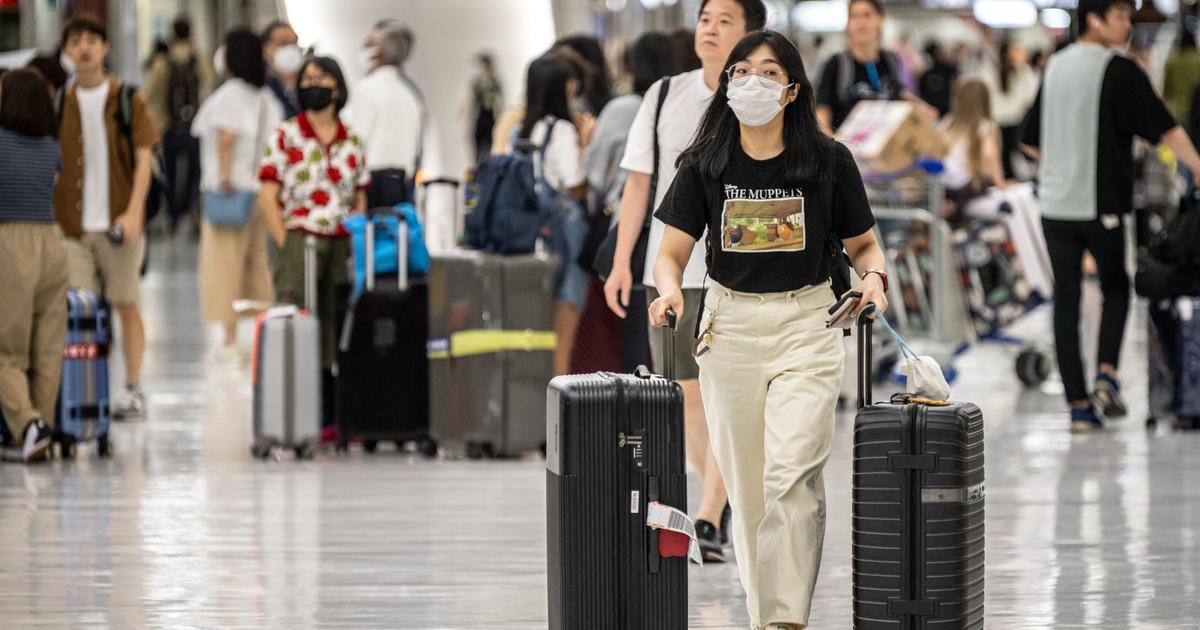Greeting without shaking hands, avoiding kisses, washing your hands regularly ... The habit of repeating these gestures is gradually eroding, even if the majority of French people have kept the right reflexes.
In its survey unveiled Friday, Public Health France publish figures which sound like a call to order: 68.1% of the 2000 people questioned between July 15 and July 21 declare "systematically wearing the mask in public", while they were 81.6% in mid-May.
Read also Barrier gestures: the French more lax than their neighbors?
Likewise, 62.5% of those polled say “greet without shaking hands and avoiding hugs”.
They were 66.4% at the end of June and 72.1% in mid-May.
This measure was respected by more than nine out of ten French people during the first confinement, in spring 2020. On the hand hygiene side, 60.1% ensure they wash them regularly ... A drop of 10 points compared to the second confinement.
Most often men aged 18 to 34
"The populations adopting prevention measures less systematically are most often men, young people aged 18 to 34 and people with a low level" of health knowledge, we read in the study.
However, Public Health France recalls that the prevention of Covid-19 goes through “combined measures”, and not by vaccination alone.
Starting from the same observation, the authors of a European study are worried about the consequences of such a relaxation.
According to this study, reducing barrier gestures such as wearing a mask and physical distancing at a time when the entire population has not yet been vaccinated increases the risk of the appearance of variants of the coronavirus resistant to the vaccine.
To study how the coronavirus could mutate in response to increasing vaccine coverage, a team of researchers from several European countries simulated the likelihood that a vaccine-resistant strain would emerge in a population of 10 million people. 'here at three years.
Their model integrates as variables the level of the vaccinated population, the virus mutation rate and its speed of transmission, anticipating successive “waves” with a surge in contamination followed by a drop in new cases after the introduction of restrictions (confinements , etc.).
The paradoxical phenomenon of "selection pressure"
Not surprisingly, the study, published in the journal Nature Scientific Reports, concludes that rapid vaccination reduces the risk of emergence of a resistant strain.
But, more counter-intuitive, their model also shows that this risk is maximum when a large part of the population is vaccinated, but not enough to ensure group immunity.
This phenomenon is referred to as "selection pressure": as more of the population has developed antibodies against the virus, the competitive advantage of more resistant strains increases.
According to the researchers, it is from a threshold of 60% of vaccinated that the probability of emergence of resistant variants becomes high.
This corresponds to the current situation in most European countries, facing the rapid spread of the Delta variant.
Globally, just over a billion people are fully immunized and some countries, especially in Africa and South America, have yet to start large-scale immunization due to a lack of doses.
These results show the need to maintain precautionary measures until everyone is vaccinated and to make "a truly global vaccination effort", stress the authors. Otherwise “vaccine-resistant strains could be eliminated in certain populations but persist elsewhere”, before spreading.















